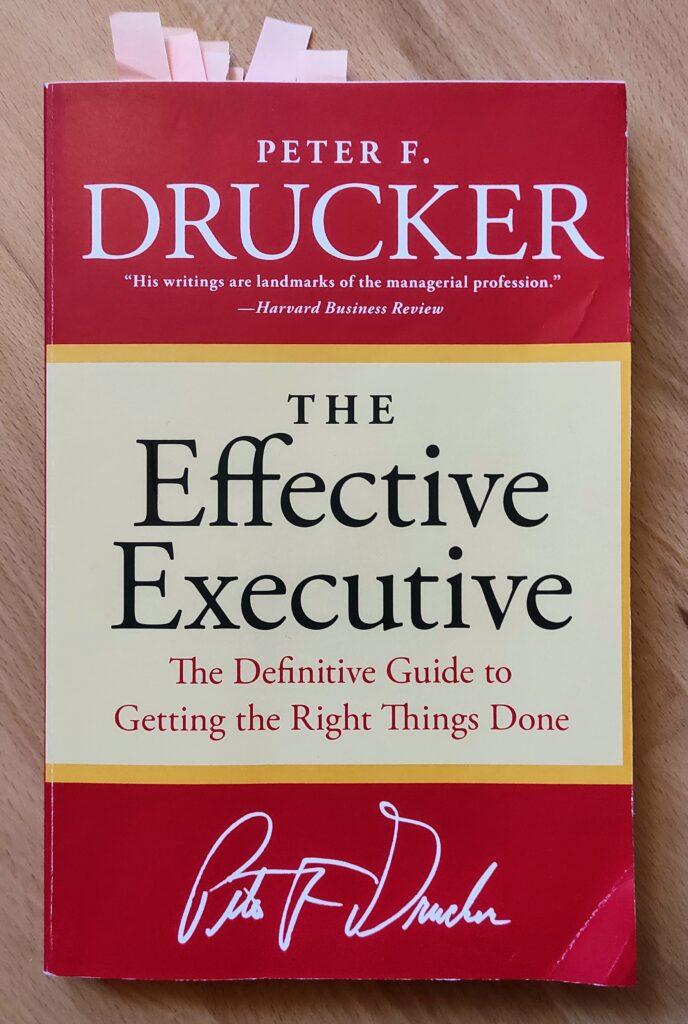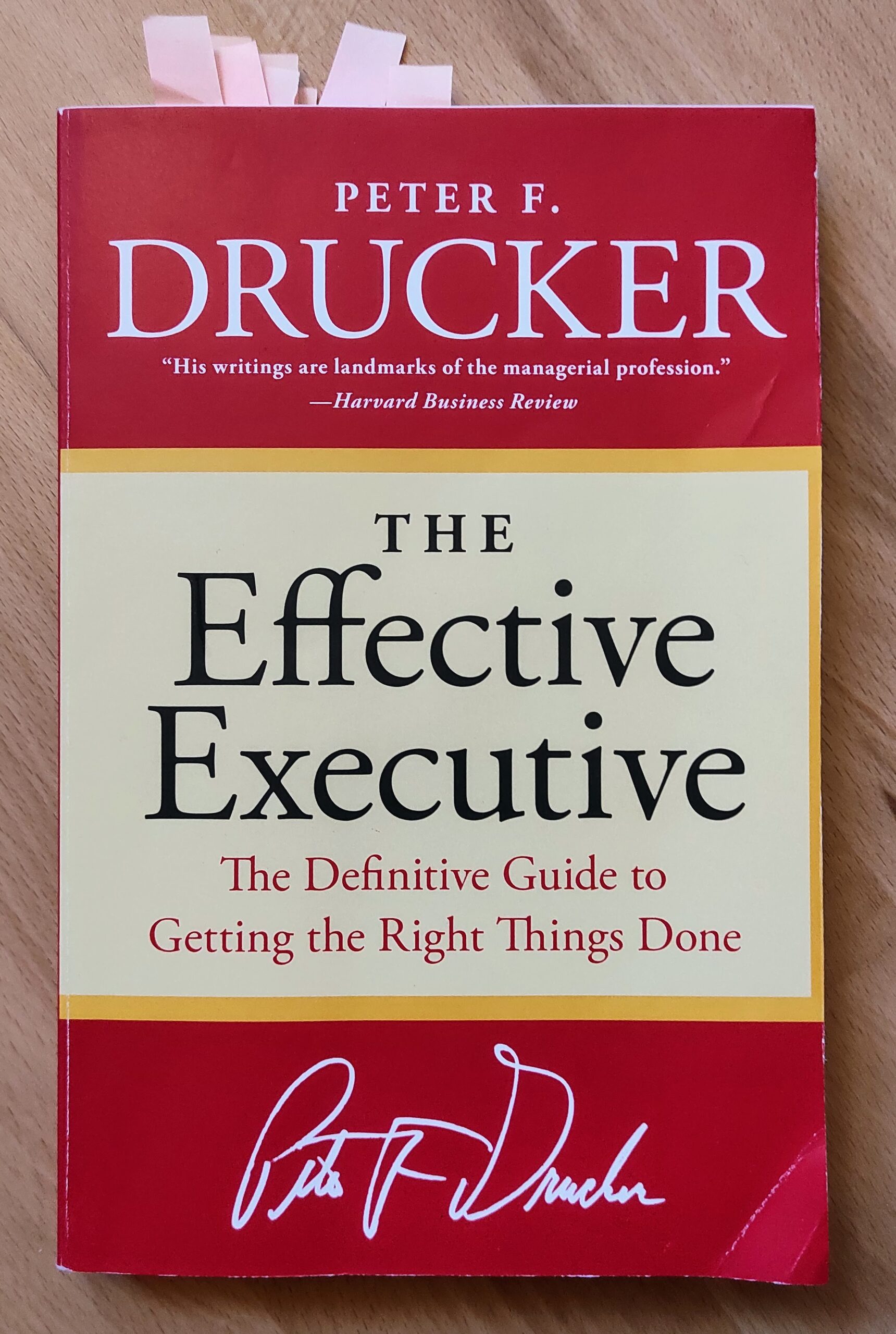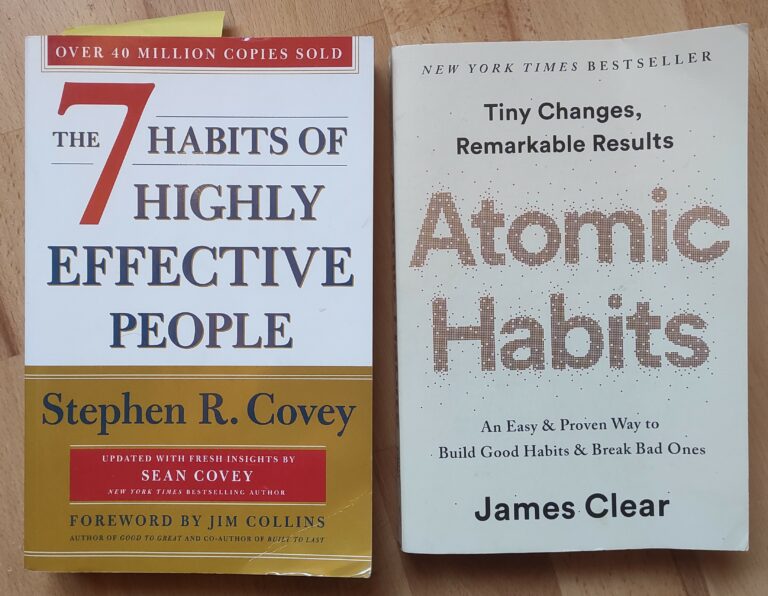Swiss-based FRENIC helps businesses go-to-market or design technology solutions that last and outperfom.
Published first in 1967, “The Effective Executive” is a classic piece of management literature, written by “the man who invented modern management”, Peter Drucker. The book emphasizes that effectiveness is not a skill, but a set of habits and practices that can be learned and developed.

Drucker outlines five essential practices for effective executives:
- They focus on their strengths and the strengths of their organization and opportunities, rather than weaknesses and threats.
- They prioritize and manage their time effectively, focusing on activities that are important but not urgent.
- They make effective decisions by gathering and analyzing relevant information and patterns, considering potential consequences, and taking action.
- They encourage and develop their employees to reach their full potential.
- They maintain high ethical standards and integrity in all their actions.
Throughout the book, Drucker emphasizes the importance of effectiveness (“doing the right thing”) for leadership: “Management is doing things right; leadership is doing the right things”. So for Drucker, “intelligence, imagination, and knowledge are essential resources, but only effectiveness converts them into results”.
Coming to the right decisions requires creativity and not bureaucracy,something I totally back. But it’s not creativity in ideation which is the easier part: creativity must be sought in how to decide and make it happen (implementation). A take-away principle is to seek disagreement rather than consent when making decisions, and to stay away from a top-down approach – something we’re chewing again via the agile movement. Or as Drucker puts it: “Effective executives know that their subordinates are paid to perform and not to please their superiors”.
It’s not just the abundance of to-the-point quotes that make Drucker’s book a fantastic reading: it’s foremost his empathy for humans and their difficulties for coming to the right decisions – something he calls a choice between “almost right” and “probably wrong”. It’s Drucker’s quite unique blend of clear-cut statements about a world full of ambiguity and shortcomings that I personally like a lot.
Some might find Drucker old-fashioned when he refers to cases almost sixty years old. Drucker also is not out for complacency but for taking personal responsibility and achieving business performance. This is in sharp contrast to the “woke” corporate culture which leads people to make little contributions and no decisions in fear of becoming accountable or not aligned to what’s currently trending in the corporate, no longer seeking what’s the right thing to do.
However, the “The Effective Executive” is my all time favorite which I read again about every five years, and then give away to someone just to buy it again shortly thereafter. If you haven’t read it yet (or in a while) then you should do so. And if you manage to understand and apply what you’ve learned then you shall consider yourself a leader.
I’ve read hundreds of management books over the last two decades, and I just happened to have more time to read some again and stock up my library. As an impatient person and late evening reader, I confess to reading multiple books at the same time and skimming over some chapters – except for the books covered here.

